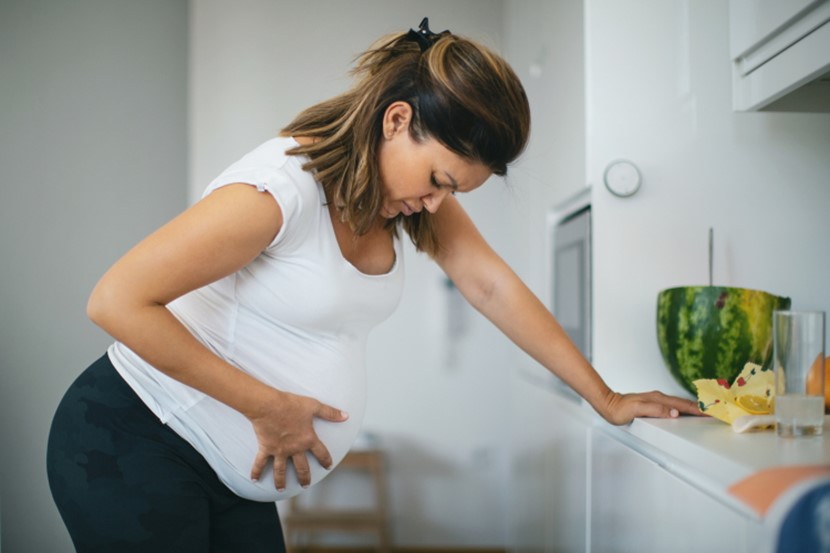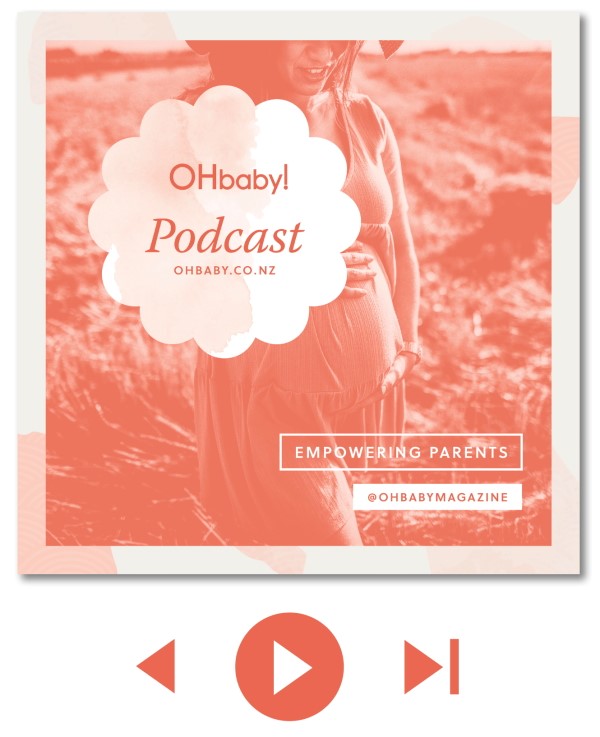Midwife Grace Strange chats about labour & birth

OHbaby! Editor Kristina Rapley interviewed midwife and birth educator, Grace Strange about what to expect in labour and birth, including how to know when you're in labour, when to call the midwife, what to pack, how birth partners can help, the stages of labour and more!
In the lead up to having your first baby, thoughts about your labour can consume you, there are so many unknowns as you embark on this unchartered territory.
Pregnancy
Something to consider early on in your pregnancy is what kind of birth you’d like to have, do you want a water birth, do you plan to have an epidural, are you wanting to have an elective C-section? This will determine which sort of LMC (lead maternity carer) you will want to choose. For example if you’re wanting a home birth you will need to select a midwife who is comfortable with this and has experience. You will also need to book in a midwife as soon as you find out you’re pregnant, as they book out very quickly, says Grace.
Birth locations:
There are three location choices for birthing: home, primary birthing unit (such as Birthcare), or hospital.
Labour
How will you actually know when you’re in labour and what are the stages?
In the last 4-5 weeks of your pregnancy you will do your birth plan with your chosen LMC and you will discuss the labour, when to call them, and when to go to hospital. But generally “You will know you’re in labour when you’re contracting for 1 minute and it comes every 5 minutes and you’ve been doing that for about an hour, your labour is getting into a pattern and increasing in length, strength, and intensity. Contractions feel like a wave”, says Grace. “You’ll know when you need to go [to the hospital], listening to your intuition is important”.
Stages of labour
Stage 1: This includes all of your labour from 0-10cm dilation. Stage 1 is broken down into 3 sub stages:
1a: Early labour which is 0-3cm is when your cervix is effacing and dilating/opening. This could feel like random contractions with no pattern to them, you’ll still be at home at this stage. Some people won’t even know it’s happening.
1b: Active labour, this is when you need to call LMC. If you’re wanting an epidural, or to have your baby in the hospital this is the time to go.
1c: Transtion. “This is the most intense time of your labour… it’s the shortest phase of these 3 stages. Generally you’ll have contractions that are on top of each other, you might feel sick, you might vomit, you want all the drugs, you want a C-section, but it’s a really cool sign for us as midwives because we know that you’re nearing the end of your labour part and you’re going to get into the pushing part soon” says Grace.
Stage 2: Birth. “For first times mums this can be up to two hours of pushing, and it’s really a bit of one step forward, two steps back… lots of people feel really scared about this part, but it’s actually a super empowering time because instead of having to cope through your labour pains, you can actually do something with your pain. You get a contraction and then you push with the contraction… Every contraction is one step closer to your baby” says Grace.
Stage 3: Delivery of your placenta. This usually takes around an hour if unassisted or 3-4 minutes if Mum is given an injection to speed up the process. It’s not usually a painful experience for most women and you have the lovely distraction of your new baby while it’s happening.
Practises such as delayed cord clamping and skin to skin are general practise now. Grace mentions that the reason skin to skin is so important is that it helps regulate baby’s temperature, their blood sugars, their heart rate, their breathing rate, it helps with bonding, and helps with breastfeeding.
Post birth:
What can you expect after the first feed and skin to skin? “If you’ve had a vaginal birth, Mum will then have some food and drink, they’ll make sure her bleeding is okay, and then after about an hour baby will get the full check: getting weighed, and measured, etc. Mum will then have a shower, and baby and mum will get dressed. After about four hours, they’ll be taken to a ward or go home.”
Sometimes for first time parents the idea of going home after having your first baby can be quite scary. Sometimes mums and babies might need to stay in hospital if either of them need to be monitored. “Another reason for first time mums to stay in hospital is if you’re going to breastfeed, to learn to breastfeed, it really is a learnt experience for mums and babies, and you have someone on tap 24/7 to help you with that. I highly recommend that you do that… I suggest, if you can, to stay until your milk comes in” says Grace.
Tip: If you feel any trauma from your birth experience, Grace recommends that you get help in the form of debriefing with your LMC, getting your support person involved or getting counselling if you need it. “Do some good processing, you’re not alone… Share your birth story.”
Check out our online antenatal class here: courses.ohbaby.co.nz/courses/antenatal
Grace Strange - Practical Parenting Antenatal: practicalparentingantenatal.co.nz/
OHbaby! magazine brings you the OHbaby! Empowered Parents Podcast.
 |
|








